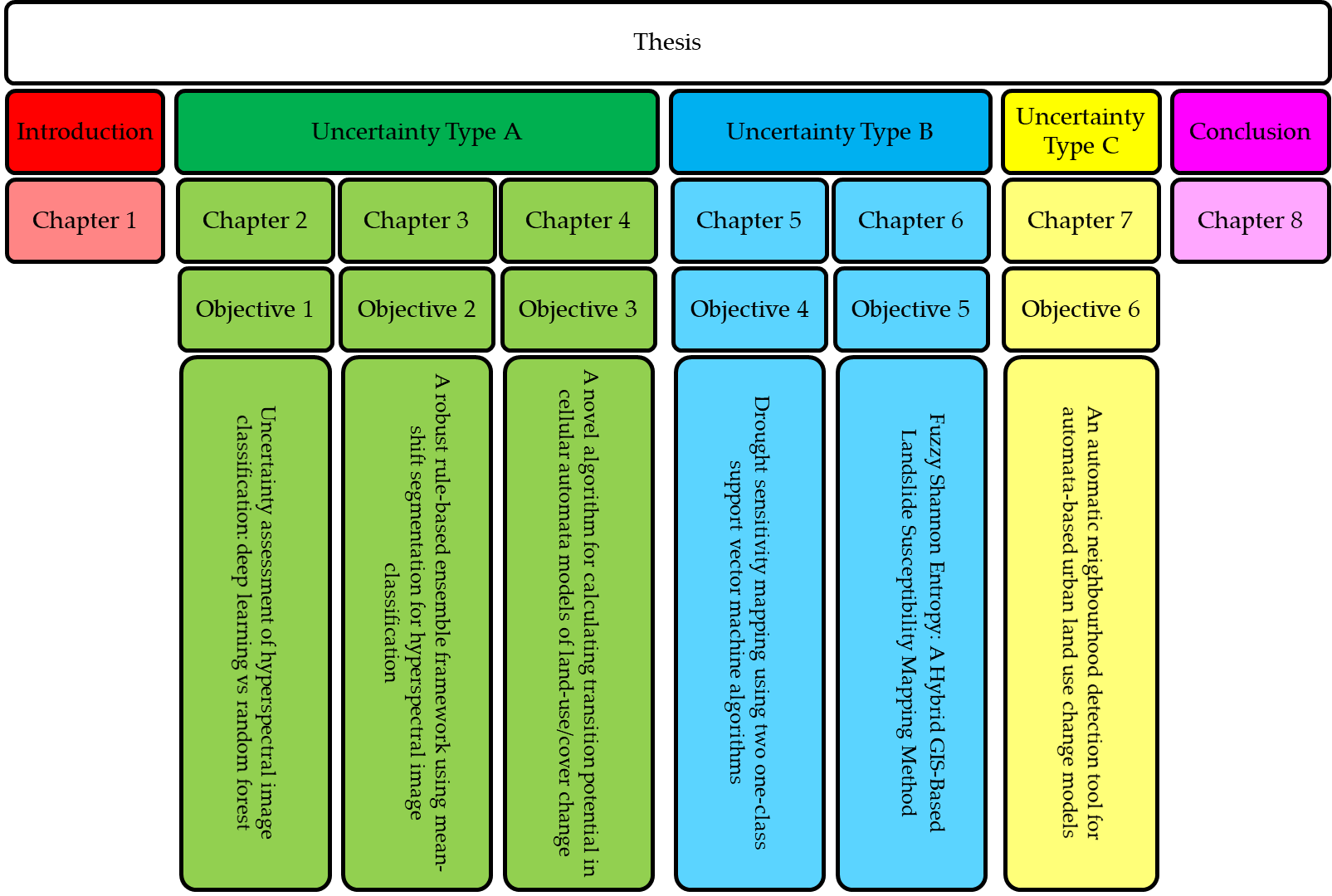Uncertainty
Types and applications in spatial predictive models
Researchers
Majid Shadman Arko Lucieer Brett A. Bryan Jagannath Aryal
Summary
Uncertainty is one of the most essential and fundamental issues that requires full attention in almost all spatial models and applications. Evidently, the quality of uncertainty modelling plays a critical role in resultant outcomes of geographical models and applications with an inevitable effect on decision- making processes. Therefore, up to now, uncertainty assessment and modelling has gained extensive attention in the field of spatial sciences. Considering the growing importance of this issue, this thesis investigates uncertainty modelling that applies in spatial science along with practical strategies to deal with them. To this end, three definitions of uncertainty are adopted, including Type A in which the uncertainties are derived from series of repeated observations, Type B , such as ambiguity and/or vagueness, with the uncertainties calculated by means other than the statistical analysis of series of observations (i.e. general knowledge of the behaviour and properties of phenomena) and Type C that is uncertainties in form of randomness. Proposed strategies to deal with each type of uncertainty is also exemplified in this thesis. This thesis, therefore, is a comprehensive illustration of different types of uncertainty in a range of important spatial models. Here, the thesis case studies are selected, so that they can be either applied to model the same spatial phenomenon within different case studies or can be generalised to new applications in the spatial domain.



